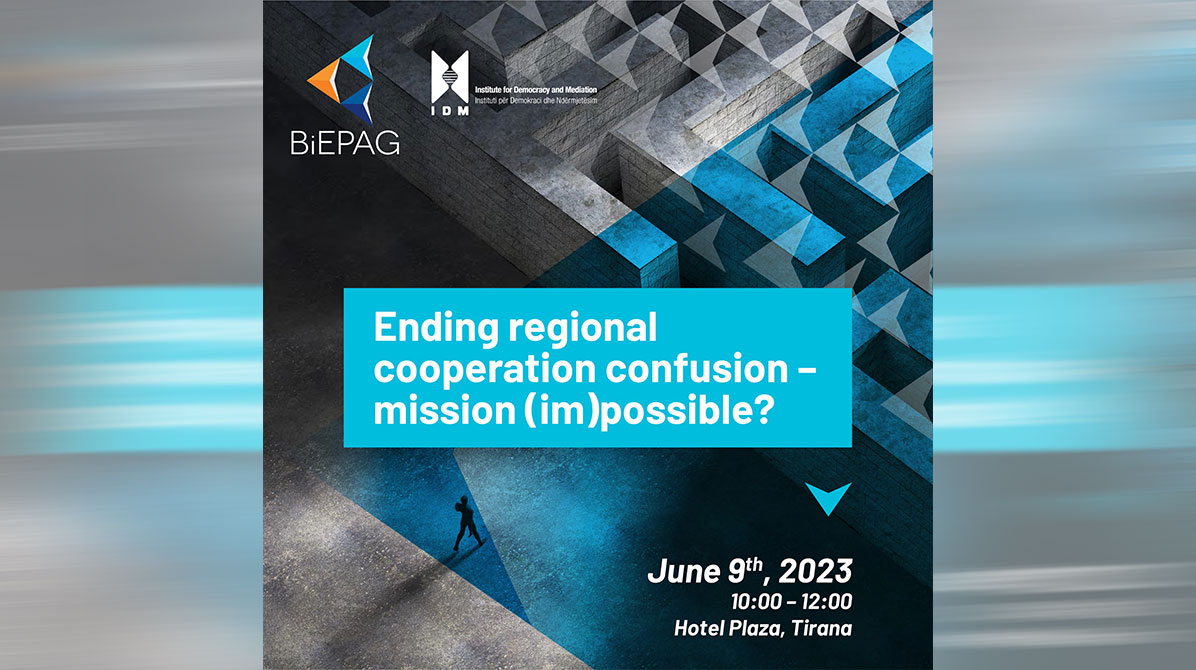
This policy forum will be an opportunity to present the BiEPAG’s newest publication on regional cooperation in the Western Balkans as part of the joint efforts with IDM to foster public discussion in Albania and bring regional and European issues closer to policy stakeholders in Albania.
Panelists:
Odeta Barbullushi Advisor to the Prime Minister and National Coordinator for Regional Economic Area
Richard Grieveson Vienna Institute for International Economic Studies, Balkans in Europe Policy Advisory Group Member
Jovana Marović Former Deputy Prime Minister and Minister of European Affairs in Government of Montenegro, Balkans in Europe Policy Advisory Group Member
Prof. Selami Xhepa Doctor of Economic Science at the University of Tirana
Moderator: Gjergji Vurmo Senior Advisor, Institute for Democracy and Mediation The Institute for Democracy and Mediation and BiEPAG Member
This year marks two decades since Thessaloniki Summit which anchored the Western Balkans officially to a path of EU membership reforms. Likewise, it observes a decade since the last member joined the Union, Croatia, which is the longest period without EU expansion since the first enlargement in 1973. The EU’s support for regional cooperation and (intra)regional economic integration in the Western Balkans is long-standing, having emerged in response to the Yugoslav wars in the second half of the 1990s.
Moreover, since the launch of the Stabilisation and Association Process in 1999, regional cooperation has become a central part of EU accession conditionality, in addition to the Copenhagen accession criteria formulated in 1993. This EU “two-track strategy” towards the Western Balkans meant combining EU bilateral relations and enlargement conditionality, with the promotion of EU standards through EU-sponsored parallel structures and multilateral intra- regional initiatives. The basic idea was that these two processes of EU and intra-regional integration could be mutually reinforcing, since regional integration among Western Balkan countries would prepare them for smoother integration with the EU in the future.
The EU has been innovative in finding ways to keep the countries of the region interested in pursuing reforms in the absence of the actual enlargement. These include strengthening regional integration, in particular through two parallel processes, the Berlin Process initiated by German chancellor Merkel in 2014, and the Open Balkan a regional initiative of Serbia, Albania and North Macedonia to deepening economic cooperation.
The panel will discuss these and other issues, drawing on a Policy Brief published by the BiEPAG - Through the Labyrinth of Regional Cooperation. How to Make Sense of Regional Integration in the Western Balkans(ENG / ALB). The paper examines regional initiatives to see how these economy-driven approaches have the potential to approximate the region closer to the goal of EU membership by means of addressing the key problems the region is facing – corruption, state capture and authoritarian tendencies. Authors are BiEPAG members: Richard Grieveson, Bojan Baća, Zoran Nechev, Matteo Bonomi, Marko Kmezić and Florian Bieber.